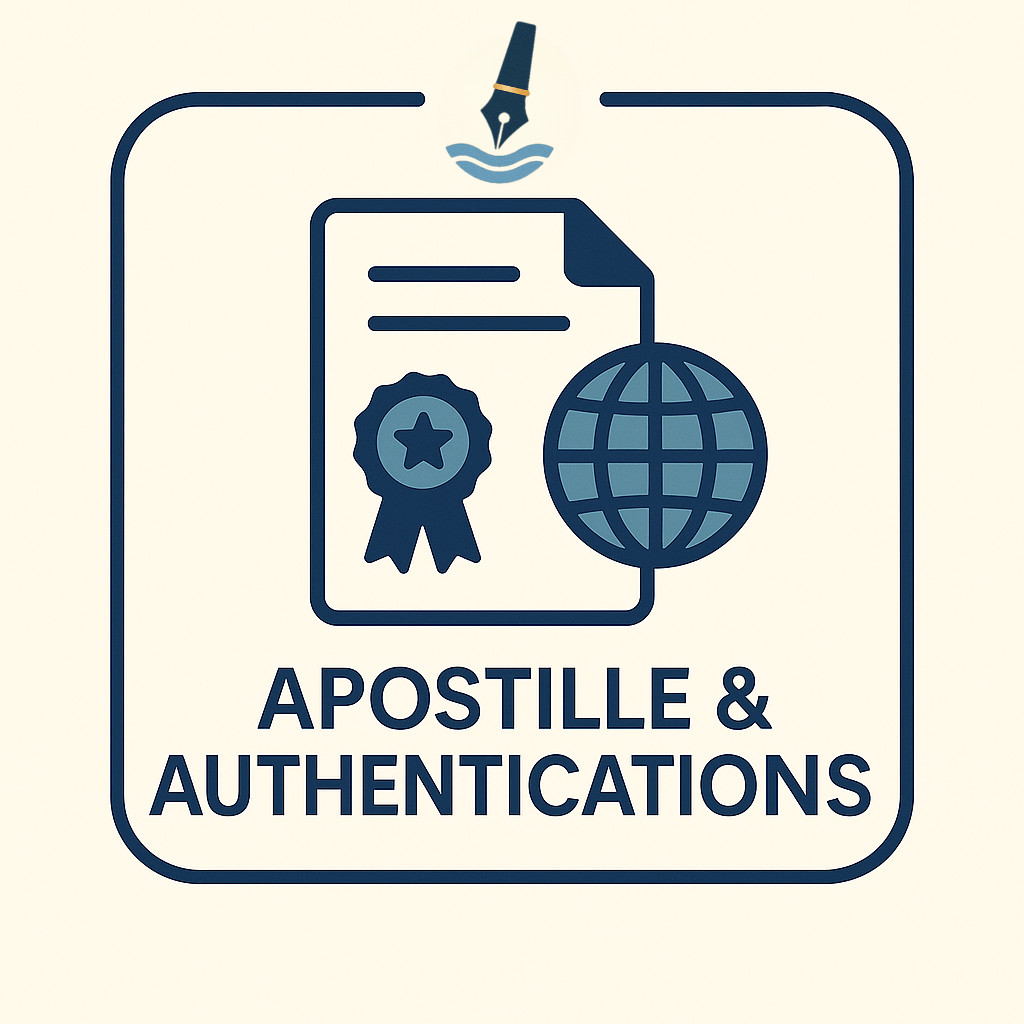

Transparent, flexible options shown again at checkout before you confirm
Prices shown before any venue parking fees or special access requirements. Exact totals are displayed in the booking portal before you confirm.
Convenient mobile service across Clark County with professional, compliant notarizations.
Book AppointmentYes, remote I-9 verification remains allowed through December 31, 2025, under the Department of Homeland Security's extended flexible verification policy implemented during the COVID-19 pandemic and continuously renewed for employers with fully remote workforces or employees working exclusively outside traditional office settings. However, employers must still conduct physical document inspection either within 3 business days of the employee's first day of work or when normal in-person operations resume, whichever occurs first. The remote alternative procedure permits employers to inspect employee identity and employment authorization documents via live video conference using tools like Zoom, Microsoft Teams, or similar platforms, but this is a temporary accommodation, not a permanent replacement for in-person verification.
The extension applies only to employers who operate entirely remotely or whose employees work at locations where no authorized representative can physically meet them within the required 3-day window. Employers using remote verification must retain documentation of the video conference, screenshots of documents examined, and detailed notes explaining why physical inspection was not possible during the initial verification period. When in-person operations resume or when the employee works at a location where physical document inspection becomes feasible, employers must conduct the physical examination and add a notation to Section 2 documenting the date of physical inspection. Failure to complete the physical follow-up inspection triggers the same penalties as incomplete I-9 forms—$288 to $2,861 per violation.
Lake Mead Mobile Notary provides authorized representative I-9 verification services that eliminate remote verification compliance risks by conducting in-person document examinations at employee locations throughout Henderson, Las Vegas, North Las Vegas, and Boulder City. Our mobile notaries travel to remote worker home offices, co-working spaces, or any convenient location, completing Section 2 verification with proper physical document inspection that satisfies all DHS requirements without relying on temporary remote alternatives. This service is especially valuable for companies with distributed workforces who want compliant, audit-ready I-9 forms without the administrative burden of managing remote verification protocols and subsequent physical inspection requirements.
No. Nevada law requires the person signing a document to be physically present before the notary during notarization, OR use remote online notarization (RON) where the signer is connected via secure video and the notary verifies their identity digitally. You cannot notarize an emergency authorization if the pharmacist or authorized signer is completely absent. However, emergency scenarios have solutions through mobile notarization or RON.
Real Scenario: A Henderson pharmacy experienced an emergency drug supply situation requiring immediate notarized authorization to access an emergency wholesaler. The pharmacist-in-charge was on personal leave out of state. The pharmacy manager (not a pharmacist) attempted to sign and have notarized the emergency authorization document. This is problematic because (1) non-pharmacist cannot typically authorize pharmacy emergency procurement, and (2) the authorized signer (pharmacist) was not present for notarization.
Solution: The pharmacy needed to contact their pharmacist-in-charge remotely and conduct remote online notarization (RON) where the pharmacist verified their identity via video conference while the notary witnessed the signing electronically. This provided valid legal notarization while accommodating the emergency.
Nevada RON Requirements: Nevada permits remote online notarization for most business documents including emergency pharmacy authorizations, IF:
For True Emergencies: When the authorized signer is unavailable and cannot be reached remotely, the pharmacy must document the emergency circumstances and potentially use a durable power of attorney previously executed and notarized by an authorized pharmacy representative. This pre-signed document grants emergency authority without requiring new notarization during the crisis.
Lake Mead Mobile Notary coordinates both in-person emergency notarization (if the signer becomes available) and remote online notarization (if the signer must participate remotely). Same-day service ensures emergency authorizations are notarized while the supply situation is still critical.
An improper DSCSA quality agreement notarization can result in regulatory violations during DEA audits, potentially leading to fines or license suspension. Federal compliance standards require notarized quality agreements to meet specific formatting and language requirements—errors can render the notarization invalid in the eyes of regulatory authorities.
Real Scenario: A Las Vegas pharmacy had their DSCSA quality agreement notarized by a general bank notary who was unfamiliar with pharmaceutical compliance language requirements. The notary omitted specific DSCSA compliance language that confirms the vendor authorization and chain-of-custody verification. During a routine DEA audit, the inspector identified the notarization as "incomplete for DSCSA compliance purposes" and issued a regulatory finding requiring corrective action.
If You Discover an Error: The fastest solution is complete re-notarization by a notary experienced in pharmaceutical documentation. The corrected notarization should reference the original document's error and provide corrected language. Most pharmaceutical vendors will accept re-notarized documentation if submitted with an explanation of the correction.
Critical: Do NOT attempt to add language or make corrections to the original notarized document. This invalidates the notarization further. Instead, obtain completely new notarization with proper pharmaceutical compliance language.
Timeline: Re-notarization can typically be completed within 24-48 hours. Mobile notaries provide same-day service, allowing pharmacies to correct audit findings before regulatory penalties accumulate.
Prevention: Use notaries with pharmaceutical compliance expertise from the beginning. Specialized pharmacy notaries understand DSCSA requirements, Board of Pharmacy language standards, and vendor-specific quality agreement formatting. This prevents costly correction cycles.
If you're facing a pharmacy notarization audit finding, Lake Mead Mobile Notary can provide emergency same-day re-notarization to bring your documentation into compliance before penalties increase.
Most pharmaceutical wholesalers and DSCSA-compliant vendors specifically require Nevada notarization for pharmacy licensing affidavits used in drug supplier relationships. Out-of-state notarizations may be accepted for the initial pharmacy licensing application with the Nevada Board of Pharmacy, but vendor quality agreements typically mandate Nevada notarization because the agreement is being executed in Nevada and DSCSA compliance requirements reference state-specific notarization standards.
Real Scenario: A pharmacy owner in Arizona submitted an Arizona-notarized pharmacy compliance affidavit to a Nevada-based pharmaceutical wholesaler. The wholesaler rejected it, stating "We require Nevada notarization for all pharmacy compliance documentation per our DSCSA audit standards." The pharmacy owner had to pay for re-notarization in Nevada, delaying the vendor relationship startup by one week.
Key Distinction:
To avoid rejection delays, use Nevada notarization for all pharmaceutical vendor agreements, quality agreements, and compliance documentation. For initial Board of Pharmacy licensing, check with the Board to confirm whether out-of-state notarization is acceptable before submitting—most require Nevada notarization anyway.
Lake Mead Mobile Notary provides experienced pharmacy affidavit notarization throughout Henderson and all of Clark County. Our notaries understand pharmaceutical compliance language and ensure your affidavits meet both Board of Pharmacy standards AND vendor DSCSA compliance requirements on the first attempt.
It depends on your specific bank's policy. Some banks require their in-house or affiliated notary to notarize signature cards for security and documentation purposes. Other banks accept notarizations from independent or mobile notaries as long as they're commissioned in Nevada and meet state requirements. The policy varies by institution and sometimes by branch, so always confirm with your bank's signature services or compliance department before using an outside notary.
Why Banks Restrict Signature Card Notarization:
Signature cards are foundational documents for account security. Banks want control over the notarization process to ensure standardized procedures, proper identity verification, and coordination with their compliance systems. If their in-house notary is only available limited hours (e.g., Tuesdays), they may create customer access problems—but this is a bank operations issue, not a legal one.
🔐 What You Can Do:
🚀 Workaround:
If your bank refuses outside notaries and their notary has limited availability, mobile notaries in Lake Mead Health Rehab and Rancho Bel Air areas can coordinate with bank staff or provide documentation that meets Nevada requirements. Some banks will reconsider when faced with professional credentials and proper notarial certificates.
No. Banks do not typically notarize deposit slips, even for large cash deposits ($10,000+). Banks are required by federal law (Bank Secrecy Act) to report large cash deposits to the IRS via Currency Transaction Reports (CTR), but they don't use notarized deposit slips to satisfy this requirement. Bank notaries often refuse to notarize deposit slips because deposit slips are transactional documents, not legal documents requiring notarization.
What Banks Actually Require for Large Deposits:
Banks rely on their own internal reporting procedures for IRS/AML (Anti-Money Laundering) compliance, not notarization. Deposits over $10,000 trigger automatic CTR filing—this is mandatory reporting, not optional protection. Notarization of deposit slips adds no legal value and creates confusion about why it's requested.
💰 When Notarization Might Be Confused with Deposit Requirements:
⚖️ What Actually Needs Notarization for Bank Compliance:
If your situation involves Gift Letters or Affidavits explaining the source of deposits, those documents may require notarization. Contact your bank's legal or compliance department to clarify exactly which supporting documents need notarization. Professional notary services in Vista Pointe and Summerlin provide same-day notarization for legitimate compliance documents.











